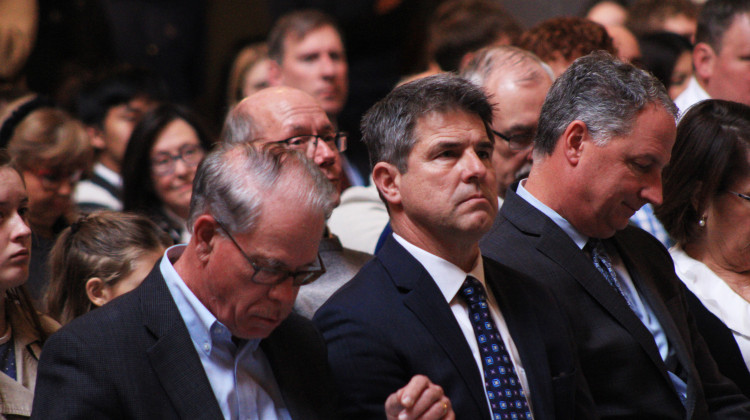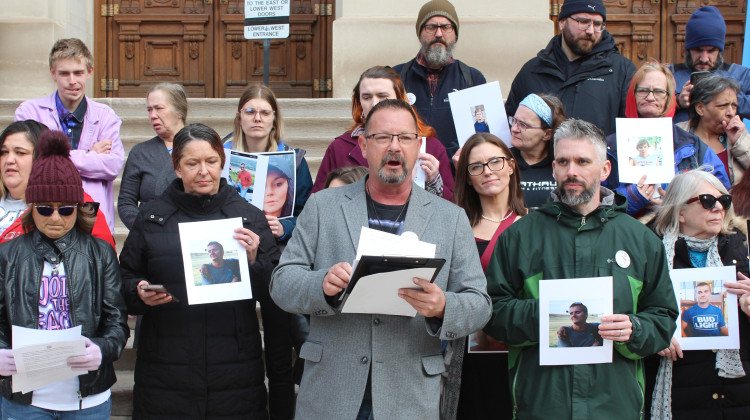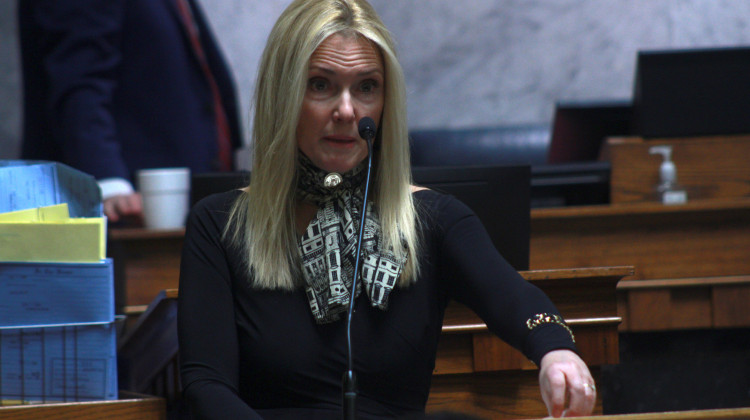By Alec Gray & Lesley Weidenbener - TheStatehouseFile.com
INDIANAPOLIS – Indiana could soon become the first state to prohibit taxes on Internet access – a move supporters say is necessary given an unstable environment in the nation’s capitol.
But with technology changing quickly, a ban could eventually mean less state revenue.
The federal Internet Tax Freedom Act currently bans states and local governments from charging taxes on citizens’ access to the web. But the law expires on Oct. 1 – following just a nine-month extension – and it’s not clear what form, if any, another extension might take.
House Ways & Means Chairman Tim Brown said that means Indiana might need to be proactive by passing its own ban. Otherwise, the state’s existing utilities receipts tax would apply to Internet services, a change that could cost Hoosiers as much as $27 million annually, according to the nonpartisan Legislative Services Agency.
Brown said the goal is to “stay a free enterprise state” so that “consumers have the greatest amount of choice that they can.”
Already, the Indiana Senate has passed legislation – authored by Senate Tax Chairman Brandt Hershman, R-Buck Creek – to ban taxes on Internet services and the bill has been assigned to the Ways and Means Committee.
It’s backed by some of the biggest Internet providers in the state, including telecommunications and cable firms. Those are companies that would have to begin collecting the utility tax on Internet services if the federal law expires.
Joni Hart, the executive director of the Indiana Cable Association, said the state should adopt the bill and become an innovator and leader for the country.
“It’s very pro-consumer. It protects Hoosiers from additional communications taxes and fees,” Hart said. “We know cost is a barrier in broadband adoption and we want to do everything that we can to make sure the Internet isn’t taxed or excessively taxed at all.”
Congress passed the federal moratorium on the taxes in 1998 and it has been renewed temporarily several times, most recently in December.
Last summer, the U.S. House had actually approved a permanent ban. But the proposal died in the Senate, in part because a bipartisan group of lawmakers sought to combine it with a more controversial measure that would require retailers to collect sales taxes on online purchases.
This year, a handful of House members are trying again for a permanent ban with legislation that doesn’t include the online sales tax issue. House Judiciary Committee Chairman Bob Goodlatte, R-Va., is one of the authors and said all Americans benefit from tax-free access to the Internet.
“Internet access drives innovation and the success of our economy,” he said in a statement in January. “It is a gateway to knowledge, opportunity, and the rest of the globe. And year after year, Congress has chosen to temporarily extend the bipartisan ban on Internet access taxes. The time has come to make this ban permanent.”
But it’s not clear that will happen. The National Conference of State Legislatures has said it supports the extension of the ban on Internet access taxation – but only if it’s combined with the sales tax measures – and the group has found support in both chambers and parties.
Other groups say a permanent ban is a bad idea anyway. The left-leaning Center on Budget and Policy Priorities argues that prohibiting state and location taxation of Internet services denies governments a key source of revenue – one that’s likely to grow as other cable- and telecommunications-based taxes shrink.
The tax base is “eroding significantly as a growing number of consumers switch from taxable cable TV service, landline phones, and music CDs to cheaper (or free) alternatives they can obtain via the Internet, such as Skype for phone calls and Spotify for music,” wrote Michael Mazerov, a researcher at the Center on Budget and Policy Priorities.
“Congress should not compound these revenue problems by forever barring taxation of the one purchase consumers must make as a gateway to all these other services: a monthly Internet access subscription,” he said.
In Indiana, Brown – the chairman of the Ways & Means Committee – is evaluating whether he has time to hear SB 80 in the second half of the session, although he said it’s on a “short list” of important legislation.
And because the ban has already passed the Senate, the language could be amended into the budget or another bill before lawmakers adjourn for the year next month.
Hart, of the Indiana Cable Association, said it’s important the legislature acts now.
“I hope that Indiana does put it in place this year,” Hart said. “I know that we have already got several requests in that this legislation in Senate Bill 80 will likely become a model across the country.”
Alec Gray is a reporter for TheStatehouseFile.com, a news website powered by Franklin College journalism students.
 DONATE
DONATE








 View More Articles
View More Articles

 Support WFYI. We can't do it without you.
Support WFYI. We can't do it without you.